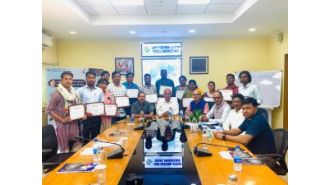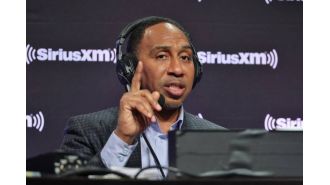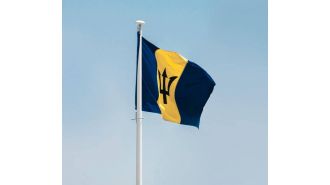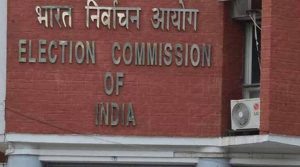Dads can't babysit their own kids.
Parenting is not limited to a specific gender.

It was a typical Saturday morning and I was out running errands when I ran into a fellow parent from a baby group I attended. We exchanged pleasantries before she asked about my son's whereabouts. With a playful tone and a smile, she asked if he was in "daddy daycare." I couldn't help but laugh and replied that yes, his father was looking after him.
Although this interaction happened over a year ago, it still sticks with me. Every time someone praises my partner for being a "hands-on dad" or "good with" our son, I can't help but feel there's an underlying implication. The suggestion that it's not the norm for a father to be involved in childcare and that it's solely the mother's responsibility.
This topic resurfaced for me when I saw a tweet by Rachael Burford, chief political correspondent at The Evening Standard, about Joe Powell, a Labour candidate who was balancing "double shifts" of "babysitting and door knocking" after his wife gave birth to twins. The tweet caused quite a stir among women, highlighting the common language used to describe men and women's roles in parenting.
While Burford later acknowledged her poor choice of words, the tweet sparked a larger online conversation about gender roles in parenting. This is something I have personally experienced since becoming a mother two years ago.
In heterosexual relationships, it's often expected that the mother will be the primary caregiver while the father takes on a more secondary role. However, I've noticed a shift in this mindset among my friends and family. The fathers are just as involved and competent in caring for their children as the mothers are.
These fathers aren't looking for praise or acting on their partner's instructions - they genuinely want to be equal partners in parenting. This shift towards more involved and proactive fathers is also seen in same-sex relationships.
In most cases, the decision to have a child is a mutual one, with both parties expressing a desire to become parents. In my own relationship, the topic of starting a family came up even before our first date. My partner made it clear that he wanted children in the future, and luckily, we were on the same page.
I firmly believe that when a man actively chooses to become a parent and embarks on the journey with his partner, he should take on an equal share of the responsibilities. While there may be research supporting the importance of maternal bonding, in today's society where most mothers also have careers and personal lives, it's unfair to expect them to sacrifice everything for parenthood while their partner gets to pick and choose.
In my own experience, my husband and I share the responsibilities of parenting fairly evenly. Of course, in the first year, I was the primary caregiver as I was on maternity leave. But whenever my husband was around, he didn't hesitate to take on parenting duties without needing to be reminded.
I understand that not all mothers have the same experience as me and was surprised to see how some couples defaulted to traditional gender roles in early parenthood. This is why it's important to challenge these societal norms and not perpetuate them by praising fathers for simply doing their fair share.
If we want to see a more equal distribution of parenting responsibilities, we need to start by changing the language we use. Instead of referring to fathers as "babysitting" their own children, we should acknowledge that parenting is not a gendered activity. It may seem like a small gesture, but it can make a big difference in shifting societal expectations and promoting equality in parenting.
23 Views










